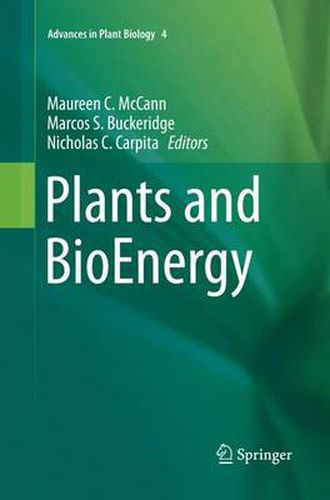Readings Newsletter
Become a Readings Member to make your shopping experience even easier.
Sign in or sign up for free!
You’re not far away from qualifying for FREE standard shipping within Australia
You’ve qualified for FREE standard shipping within Australia
The cart is loading…






This title is printed to order. This book may have been self-published. If so, we cannot guarantee the quality of the content. In the main most books will have gone through the editing process however some may not. We therefore suggest that you be aware of this before ordering this book. If in doubt check either the author or publisher’s details as we are unable to accept any returns unless they are faulty. Please contact us if you have any questions.
A country’s vision for developing renewable and sustainable energy resources is typically propelled by three important drivers - security, cost, and environmental impact. The U.S. currently accounts for a quarter of the world’s total oil consumption, with domestic demands necessitating - at an ever growing cost - a net import of more than 50% of the oil used in this country. At the same time, Brazil, because of its forward thinking on energy strategy, is today energy independent. As emerging economies around the world increase their petroleum use by large margins and as large fractions of that new consumption are necessarily supplied from unstable parts of the world, the inevitable repercussions on petroleum-driven economies will continue to escalate. In addition, there is an unequivocal imperative to take immediate and aggressive measures to reduce net greenhouse gas emissions by decreasing fossil fuel consumption and increasing our use of carbon-neutral or carbon-negative fuels as well as improving efficiency of fuel use. Economic growth and development worldwide depend increasingly on secure supplies of reliable, affordable, clean energy. Together with its counterpart societies, was convened the First Pan-American Congress on Plants and BioEnergy, which was held in June, 2008, in Merida, Mexico. Sponsored by the American Society of Plant Biologists, this congress was designed to initiate Pan-American research collaborations in energy biosciences. At that congress, the organizational committee committed themselves to continue the meeting biennially, resulting in the 2nd Pan-American Congress on Plants and BioEnergy to be held with the endorsement of ASPB, July 6-10, 2010, in Sao Paulo, Brazil. Whereas the 1st congress covered a broad range of topics that bioenergy impacted, the second congress will focus more on the advances in plant biology: the genetic improvement of energy crop plants, their fit into regional environments, and the development of a sustainable energy agriculture.
$9.00 standard shipping within Australia
FREE standard shipping within Australia for orders over $100.00
Express & International shipping calculated at checkout
This title is printed to order. This book may have been self-published. If so, we cannot guarantee the quality of the content. In the main most books will have gone through the editing process however some may not. We therefore suggest that you be aware of this before ordering this book. If in doubt check either the author or publisher’s details as we are unable to accept any returns unless they are faulty. Please contact us if you have any questions.
A country’s vision for developing renewable and sustainable energy resources is typically propelled by three important drivers - security, cost, and environmental impact. The U.S. currently accounts for a quarter of the world’s total oil consumption, with domestic demands necessitating - at an ever growing cost - a net import of more than 50% of the oil used in this country. At the same time, Brazil, because of its forward thinking on energy strategy, is today energy independent. As emerging economies around the world increase their petroleum use by large margins and as large fractions of that new consumption are necessarily supplied from unstable parts of the world, the inevitable repercussions on petroleum-driven economies will continue to escalate. In addition, there is an unequivocal imperative to take immediate and aggressive measures to reduce net greenhouse gas emissions by decreasing fossil fuel consumption and increasing our use of carbon-neutral or carbon-negative fuels as well as improving efficiency of fuel use. Economic growth and development worldwide depend increasingly on secure supplies of reliable, affordable, clean energy. Together with its counterpart societies, was convened the First Pan-American Congress on Plants and BioEnergy, which was held in June, 2008, in Merida, Mexico. Sponsored by the American Society of Plant Biologists, this congress was designed to initiate Pan-American research collaborations in energy biosciences. At that congress, the organizational committee committed themselves to continue the meeting biennially, resulting in the 2nd Pan-American Congress on Plants and BioEnergy to be held with the endorsement of ASPB, July 6-10, 2010, in Sao Paulo, Brazil. Whereas the 1st congress covered a broad range of topics that bioenergy impacted, the second congress will focus more on the advances in plant biology: the genetic improvement of energy crop plants, their fit into regional environments, and the development of a sustainable energy agriculture.